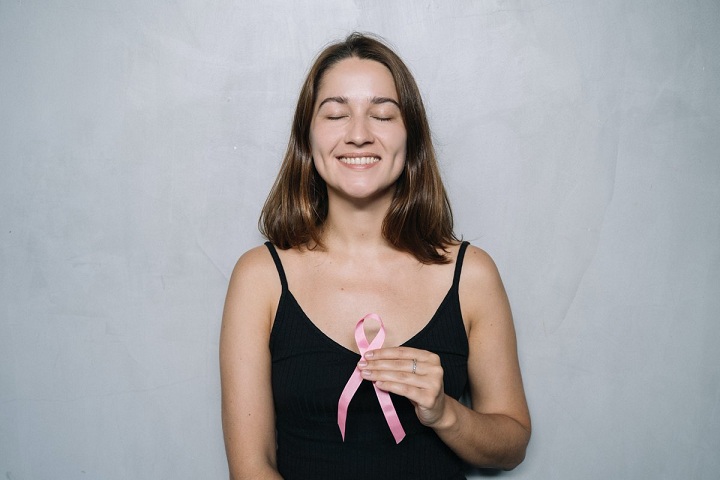Just in the US, over a quarter of a million breast cancer cases are diagnosed each year. And yet, each patient’s journey towards recovery is different, made of unique challenges and milestones.Â
Thanks to the advanced medical treatments available today, breast cancer survival rates are as high as 99%. But this does not take anything away from how hard and challenging the recovery journey might be. And, fatigue is likely to be your companion throughout your therapy.Â
Here are some simple tips to make coping with it a little easier.
Work With a Specialist
According to studies conducted in 2020, up to 85% of cancer patients deal with cancer-related fatigue on a daily basis. While this is the most common side effect of cancer treatments and a widespread symptom of breast cancer itself, you should not attempt to treat it without the support of a specialist.Â
Consulting an expert can help you understand how the different drugs interact with your body and which therapy can be fatigue-inducing.Â
For example, some medications used to prevent nausea or pain contribute to fatigue. From adjusting dosages to changing drugs, a specialist can help you find the right treatment to manage the symptoms of cancer while reducing the side effects of your therapy plan.Â
Adjust to Your New Pace – and Take Breaks
While fighting breast cancer, it is essential to put your body in the best conditions to support recovery. And, adjusting to your new pace is the first step to doing so.Â
While you might be longing to return to your normal everyday life, it is important to be patient and listen to your body. While having a routine in place is essential, you should also learn to prioritize your tasks and plan ahead to avoid feeling overwhelmed. And, don’t forget to plan for and take breaks during the day.Â
Slowing down your pace and breaking down daily activities into smaller tasks can help you better manage your fatigue, thus ensuring that your energy will last throughout the day.Â
Don’t be afraid to ask for the help of your family, friends, and doctor for tasks that feel too difficult to handle.Â
Keep Your Body ActiveÂ
While it might seem counterproductive at first, exercising during your breast cancer treatment can ease fatigue, boost your energy, and improve your mood. Indeed, according to recent studies, aerobic exercise, such as walking, jogging, cycling, and swimming, has been seen to reduce cancer-related fatigue, depression, and anxiety.Â
While the goal is to practice around 150 minutes of moderate exercise a week, it is important to start slow, build up your routine over time, and work with your doctor. And, listen to your body – after all, not every day will be the same.Â
What’s more, new studies have shown that an exercise program followed after treatment can enhance the life of breast cancer survivors.
Offer Your Body the Rest and Sleep It Needs
Rest and sleep are essential for your body to fight inflammation, strengthen the immune system, and replenish your energy.Â
While you might not be used to taking breaks during the day, you may consider planning your schedule so that you can take a short nap, rest for 30 minutes, or practice a 15-minute mindfulness meditation session.Â
Even more importantly, focus on getting at least 7-8 hours of sleep per night. A robust bedtime routine can help you reset your circadian rhythm and establish correct sleep hygiene practices.
Work on Your Mental Wellbeing
A cancer diagnosis can take a toll on a patient’s mental and emotional wellbeing. And, while cancer-related fatigue can worsen feelings of anxiety and depression, a mindset shift is a powerful tool to boost energy levels.Â
That is why it is important to recognize that a diagnosis might be a life-changing experience and find the support of mental health professionals.
Additionally, according to studies conducted in 2021, mindfulness-based interventions – such as meditation and yoga programs – have been able to reduce feelings of fatigue in breast cancer patients.Â
Draw Energy From a Balanced, Nutritious Diet
Food is the main source of energy for the body, and adopting a balanced and nutritious diet can make a difference in how a patient can cope with fatigue.Â
While nutritional needs vary depending on the stage and severity of your cancer diagnosis, there are some general guidelines to adopt. These include avoiding caffeine and alcohol, drinking plenty of fluids, and focusing on unprocessed, nutrient-dense foods (i.e.: legumes, beans, fruits, and vegetables).
Additionally, the Physician Committee for Responsible Medicine suggests adopting a protective plant-based diet to promote breast health and fight cancer.Â
Every Person’s Journey is Unique – Don’t Compare Yourself To Others
When dealing with a breast cancer diagnosis, patients might feel isolated and distressed, which can worsen existing feelings of fatigue. Learning about other patients’ stories can offer encouragement and support.Â
But don’t forget that each case is unique. So, you shouldn’t compare yourself to others, but listen to what your body needs – in terms of exercise, food, and rest.


















